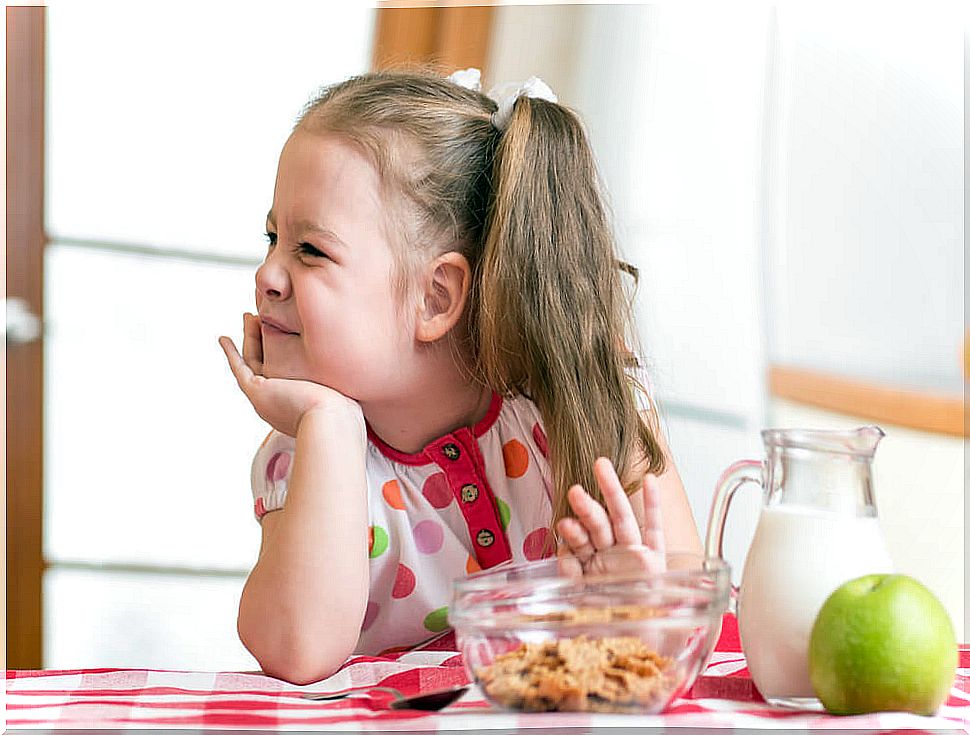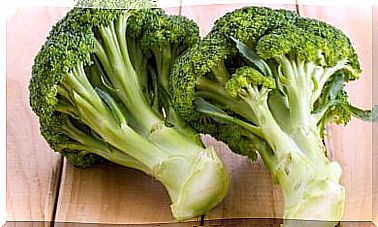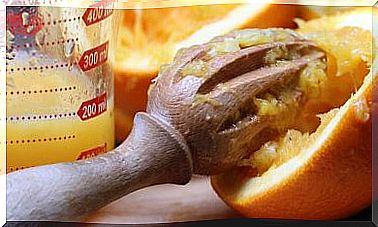Children With Poor Appetites: How To Help Them?
We must ensure that children’s poor appetite is not due to a medical issue, in which case we must go to a specialist to obtain a diagnosis.

Children with poor appetites are a concern for their parents every day. Not only because they don’t eat enough amounts, but because they don’t dare to try new foods for one thing or another.
There are children who, apart from eating little, dislike trying new textures. Others find certain flavors unpleasant and the sum of all these details, little by little, ends up being a big problem. The options when it comes to feeding them are increasingly limited and meal times become a battle.
Even if they only drink from a bottle and eat baby food, compotes and puddings, it is necessary to help them accept new flavors, textures and even smells and colors, so that they can be well nourished and healthy. Now how can this be achieved? Let’s dive deeper into the topic below.
Why doesn’t the child eat?
Depending on the child and the cause (s), the problem may be resolved in a short time or longer. There are specific situations in which lack of appetite is normal and others in which it is not.
It must also be borne in mind that, many times, although the cause of lack of appetite is something simple (disgust with certain aromas, for example), this does not mean that the solution should be taken lightly or that it should be applied abruptly as good at first.
To solve the problem properly you have to work it in stages, constantly. For this, the help of a professional may be necessary in certain cases. The key is not to rush.
Taking drastic measures to remedy poor appetite can backfire. For example, if the child eats excessively, out of obligation, his health could be compromised in the long term.
Children with poor appetites may have:
- Food intolerances. In some cases, when the child has a poor appetite with only some foods, it is possible that they have some intolerance to them, as suggested by this study by the National Institute of Pediatrics of Mexico. This can happen with milk, flour or nuts, for example. It should be taken into account if the child has digestive problems of any kind.
- Anemia. An iron deficiency could be the reason your child has a poor appetite. In this case we must ensure that the diet is complete and balanced. We can also increase the amount of foods rich in this mineral.
- Intestinal parasites. They are very common in children, since they put their hands to their mouths easily. However, its symptoms may go unnoticed or be mistaken for other disorders. Nervousness, dilated pupils and itching at the tip of the nose or year are other symptoms of parasitosis.
- Emotional issues. We must never rule out emotional disorders as the cause of illness. In this case, for example, a difficult family situation or any problem in the child’s environment could affect his appetite. This is suggested by this study carried out by the University of Chile.
- Other diseases. If the loss of appetite is prolonged or excessive, we should consult a doctor to carry out the necessary medical tests. In this way we will rule out any disease.
Tips to help children with poor appetites
Once you have gone to the pediatrician and he has given his diagnosis, it will be essential to follow his instructions. And not only in relation to the taking of medication (in case they had been prescribed) but also in relation to diet and hydration.
You should also consult with the professional about the use of certain natural remedies to complement the treatment. If you authorize us to use, for example, honey, we can use it with peace of mind.
1. Nutritional yeast
Nutritional yeast, rich in vitamins, minerals and amino acids, is an excellent natural remedy to stimulate the appetite. In addition, it is an ideal supplement to promote good physical and mental development.
2. Original recipes
A tip for the child to start eating more is to try new recipes that are visually appealing. We can even make original shapes or drawings with the food on the plate so that the food is more attractive and thus encourages you to try it.
If the child does not want to eat legumes, fish or vegetables, for example, we will try to make fillings or doughs with these ingredients. A good way for them to eat legumes is chickpea flour.
3. Participate in the kitchen
There are specialists who recommend involving children in the preparation of food to stimulate their appetite. Be careful, the idea is not to ask them to cook themselves, but to give them small tasks (according to their age) so that they are distracted and see the food as something good.
4. Sport

Although it seems counterproductive, in reality it is not. To help children with poor appetites to eat more, they can be encouraged to do a sport or activity that they enjoy. In this way, by exercising and expending energy, their own body will encourage them to search for food.
Attention!
It is very important not to skip the doctor’s instructions or neglect the prescribed treatment at the first sign of improvement. For the plan to be successful, it will be necessary to respect the stipulated time.
On the other hand, it must be remembered, once again, that natural remedies should not be administered as a substitute for drugs or food as such.








